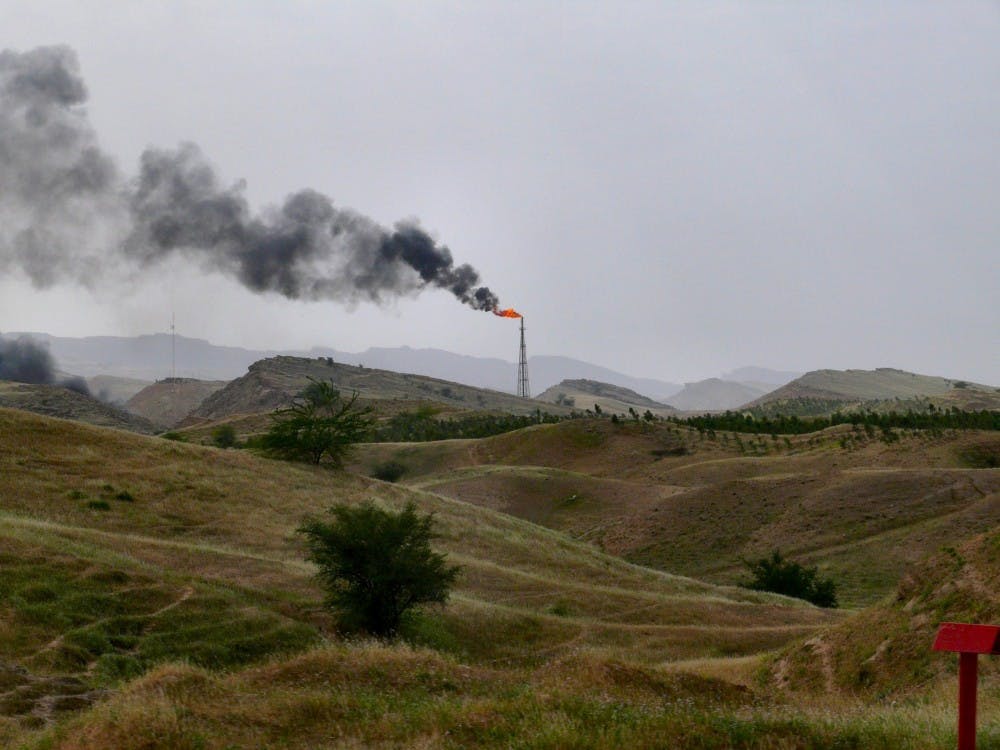Since Representative Alexandria Ocasio-Cortez and Senator Ed Markey introduced their Green New Deal legislation last week, the proposal has been met with mixed reactions. Of course, there was the expected enthusiasm and support from left-wing groups and politicians, who see it as a first step toward the United States meaningfully addressing the issue of climate change through a concerted effort to become carbon neutral within ten years.
The idea was also met with plenty of heavy skepticism, and even some mockery, from those who consider the bill to be laughably unrealistic and vague, given that within its 14 pages is a proposal for a gigantic revamp of the American economy and welfare system. Even Speaker Nancy Pelosi, a Democrat, called it “the green dream, or whatever they call it, nobody knows what it is, but they’re for it, right?”
While critics are certainly correct that the legislation is brief and not specific in how it aims to accomplish its goals, they miss what is most important about the Green New Deal. Its main function, whether Rep. Ocasio-Cortez or Senator Markey envisioned it this way or not, will be to open up the national dialogue about what is being done to fight climate change, and to challenge the current way of thinking about what is considered an acceptable response to this threat.
By putting such bold ideas into a real congressional proposal, Rep. Ocasio-Cortez and Senator Markey have sent a loud and clear message that the status quo of U.S. climate policy is unsustainable and unworkable. The bill is an example of the brash, radical thinking required if we are to effectively respond to climate change. The Green New Deal should not be considered a detailed, specific course of action, especially given its brevity and the fact that it is a non-binding resolution. Its passage, however, would be a meaningful statement of intent from Congress, not a formal commitment to the proposal’s objectives.
In fact, the most important thing about this bill has nothing to do with its passage. Simply by writing and releasing the Green New Deal, or GND, into a blue Congress, Rep. Ocasio-Cortez and Senator Markey have designed a government proposal that responds to the effects of global warming and promotes the issue in the news cycle. This is a major feat, given that climate change scarcely garners the media attention that it deserves. Mainstream pundits are now debating the most practical ways for the United States to act as the Earth gets warmer, instead of pointlessly debating the settled scientific question over whether global warming is even occurring, or just ignoring the issue altogether.
The way we talk about climate change has a huge effect on how we counter it, and the proposal of the GND will go a long way to improve the national conversation. Whether the eventual, more specific policy proposal differs the GND in its methods, such a proposal could only be passed in a political environment that is receptive to novel ways of protecting the United States and the world from climate change. The Green New Deal is an instrumental part of creating such a political environment.
The message of the GND should extend not only into media conversations but those that we have on campus day-to-day. As the members of the generation that will have to deal with the most consequential effects of climate change, it is imperative that our conversations about it are geared toward practical, active solutions. The moral of the GND is not any specific policy proposal contained within it, but that it is time for Americans, especially college students who will become future policy makers, to begin having the right type of discussions about how we need to respond to global warming.
Benjamin Gelman is a first-year from Houston, Texas. He can be reached at bgelman@princeton.edu.









